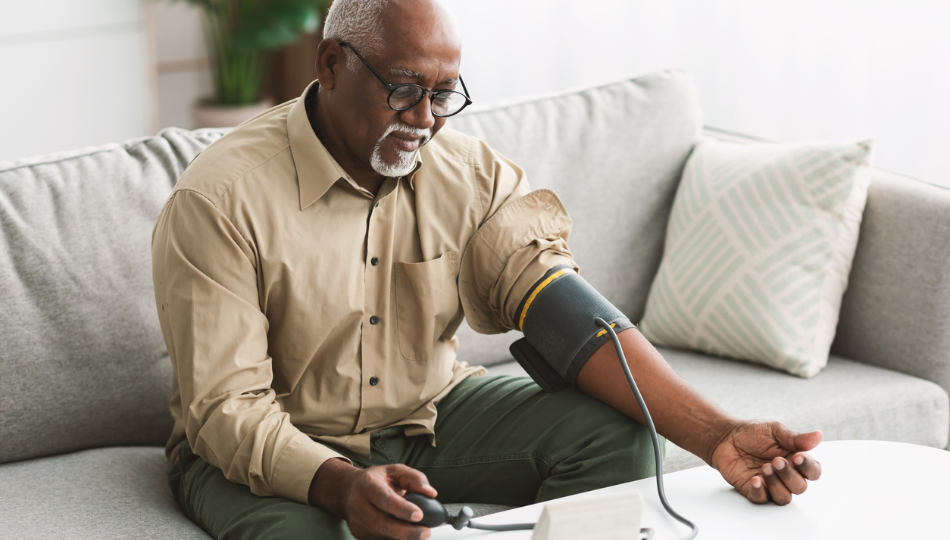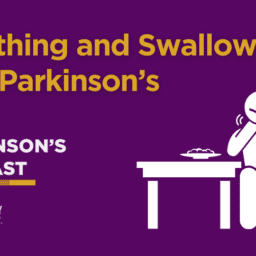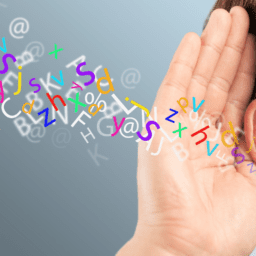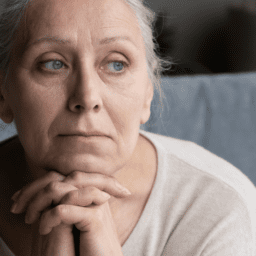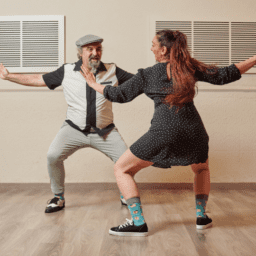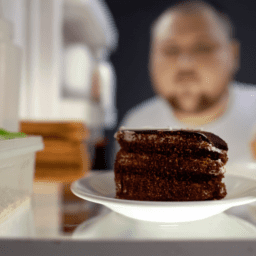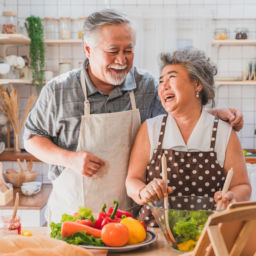Neurogenic orthostatic hypotension (nOH) is due to the failure of the autonomic nervous system to regulate blood pressure in response to postural changes due to an inadequate release of norepinephrine, leading to orthostatic hypotension and supine hypertension. In this webinar with Dr. Salima Brillman, learn about the causes and symptoms of nOH and various ways to treat it.
You can read the transcript below or you can download it here.
Note: This is not a flawless word-for-word transcript, but it’s close.
Melani Dizon:
Hello and welcome everybody to the Davis Phinney Foundation Live Well Today webinar series. I’m really glad that you’re here. My name is Melani Dizon. I’m the Director of Education and Content at the Davis Phinney Foundation, and I’m excited to be here today with Dr. Salimia Brillman to talk about nOH and Parkinson’s. Thank you so much for being here today, Dr. Brillman.
Salimia Brillman:
My pleasure. Thank you so much for having me. I appreciate it.
Melani Dizon:
Great. So, let’s get to it, Dr. Brillman. First, can you just tell everyone, watching who you are, what you do, and how you got interested in this work and in particular, nOH and some of the non-motor symptoms of Parkinson’s?
Salimia Brillman:
Sure. So, I’m Salimia Brillman. I am a movement disorder neurologist in Palo Alto, California. I’m what, I finished my fellowship in 2006, and I, I’m really, I was telling Mel how happy I am to be invited to do this particular, talk. I, I have really a passion for nOH, and I think it’s, it’s not very well recognized. It’s definitely undertreated and, it’s very gratifying to be able to recognize this and treat it. It really does help people, and I am so happy to talk about it anytime anybody will listen. So, I’m happy to be here, to talk to you about it today and hopefully, be able to educate and answer questions about this condition.
Melani Dizon:
Great. Thank you so much. Yeah. So, I got her on here a little bit earlier and I just wanted to grill her. I have so many questions myself, even though I’m just, I, I read about it, and I look through it and I study it, and I’m still just so confused about why it’s really left out. And it’s, it’s not something that gets treated. It gets ignored. people don’t actually know they have it. So, let’s start from the ground up. Let’s pretend nobody has any idea what NOH is. What is it, and what does it stand for? And is, oh the same as nOH, like, let’s talk about that.
Salimia Brillman:
Right. So, great questions. So is orthostatic hypotension, and so that’s the sort of umbrella term. orthostatic hypotension is a change in blood pressure with posture. So going from laying down to standing up and there’s a drop in the systolic blood pressure of 20 millimeters of mercury, or 10 millimeters of, systolic, I’m sorry, diastolic blood pressure. So, either 20 of the systolic, the upper number, or 10 of the bottom number with a change in position. So that’s orthostatic hypotension, and that’s an umbrella term. And under that is three prongs. So, it could be non-neurogenic issues that can, can be contributing to this neurogenic orthostatic hypotension, which we’re going to talk about, and iatrogenic. So, the non-neurogenic issues can be due to dehydration, and cardiac problems. The iatrogenic can be things like medications, so people that are taking blood pressure medications or other medications such as some of our, our PD medications or antipsychotic medications or antidepressants, sometimes those can decrease blood pressure.
Neurogenic orthostatic hypotension is a drop in blood pressure upon standing or sitting up of 20 millimeters of mercury on the top number or 10 of the bottom in a person who has a neurologic condition. Certain neurological conditions like Parkinson’s disease, MS, Lewy body dementia, that type of thing. So those are the definitions and that distinguishes sort of, oh, from nOH. So, NOH is basically having this underlying neurological condition and what we think. So, when a person stands up, any of us stand up, there’s the pooling of blood to the lower extremities, and we have these, this, neurotransmitters that come out and they help to vasoconstrict our lower extremity veins and arteries that help the blood pool upwards, and that gets the blood pumping to the, to the heart and then to our brains, and it gets all the blood flowing. Well in people with Parkinson’s. There is a deficiency of this neurochemical called norepinephrine. And so, in neurogenic orthostatic hypotension, there is this deficiency in norepinephrine. So, when a person stands up, they don’t have that neurotransmitter or enough of it to constrict those veins and the arteries in the lower extremities. So, when they stand up the blood pools, but they can’t constrict those vessels, therefore they can’t get enough, blood to the heart, and they can’t get enough blood circulating to the brain, and they get the symptoms.
Melani Dizon:
Okay. That was a really great description. Now I have something I want to try now, I haven’t done this before, but I would love for people before we like get into all of the different things that actually make up nOH. it’s not just that drop, right? I mean, that is clinically the drop, but like there’s a lot of things that could be happening, right? That they’re experiencing and a symptom. So, I would love to know first is how many, if you are somebody who you think you have nOH, just say, you know, drop it in the chat, you know, I have it, or something like that. And then we’re going to go through all of the different things, and then we’re going to see if that’s, if anything changes for those of you who think like, Nope, I don’t, but I’m just here to learn more about it.
Melani Dizon:
And then at the end of this talk, you’re like, oh my gosh, I think I might have it. Right. Okay. So, great. So, a lot of people, yes, there will definitely be a recording. No worries. Lots of people. Oh, I think I have it. I have it. I don’t have it. I think I have it. dizzy all day, every day we’re going to talk about that. I definitely do. Okay, cool. This is going to be great. We’re going to learn something here. Great. Okay. Now, this, like I said, it seems like one of the like lesser-known symptoms. it also seems, from my vantage point that part of this is, language, because we might call it nOH and somebody has no idea what nOH is, and yet they have all of the symptoms of it, but, they haven’t put that name to it, right? And so like, we’re kind of doing a disservice to them, us as an education, company, basically we’re trying to provide education to not kind of dig into all of the different things that it really means. And so, do we, and with all that said, do we know how many people with Parkinson’s experience nOH?
Salimia Brillman:
Yeah. So, it’s about one in five people with Parkinson’s have it. So, it’s not that it’s uncommon. It’s pretty common in our population. and I think a lot of it is, it’s just there’s a lot of non-motor symptoms that can happen to people with Parkinson’s. Not that everything is going to happen to everybody, but I think part of it is, as we talked about education and knowing that sometimes it’s not dis just dizziness or lightheadedness, it can be other symptoms. And so, that’s why we’re here to educate. Yeah.
Melani Dizon:
All right, let’s get into that. So, we know that dizziness and lightheadedness are a, is one that most people think of. They get up and certainly if they have that 2020, what is it?
Salimia Brillman:
Or mercury.
Melani Dizon:
Or 10 millimeters that, oh, yeah. Like I’m going to feel dizzy and lightheaded, but let’s, let’s start there and go through the rest.
Salimia Brillman:
Sure. So those are the common symptoms. So, lightheadedness, dizziness, near fainting, or fainting, those are the common symptoms. But there are a lot of other symptoms that can occur. And remember, always remember this is positional. This is not happening while you’re just sitting and watching television, though, it can happen when you’re laying down and sitting up, from a seat, from a laying down to a seated position. So, this is positional. So, some people may have weakness in their body, some people may have leg buckling. So, if you get up and you stand up, you may feel like your legs are going to give way. other people may have cognitive changes. So, this is something that the spouse or the care partner will notice. Like, my husband gets up and then all of a sudden he looks really foggy and he’s not answering my questions.
And that’s because the blood is not circulating to his brain, and he can’t possibly, or she cannot answer the questions because he’s not all there, right? Because the blood’s not circulating. some people may have visual blurring. they’re, they’re, they can’t actually see straight, again, because they’re not perfusing or getting enough blood to their retinal arteries or their arteries that go to their eyes. Some people may have what we call coat-hanger syndrome. So, as they stand up or even walk, they may feel, pain in there, in their trap or neck muscles. So that’s another, another one. Some people may have headaches, upon standing and walking. Others may feel nauseated and feel like they’re going to throw up. I’ve heard some of the patients with NOH feel like they’re going to fall into a black hole. Others can have chest pain and have a full cardiac workup.
And it’s not true because of what’s going on in their heart, but they’re actually not perfusing their heart, so they get pain from it. And I saw this in the chat too, about, shortness of breath. And yes, one can have, shortness of breath from this as well. So, these are sort of the other, sort of symptoms that can occur with the standing and the changes in the position. And usually, for the criteria, it’s within three minutes of standing, but in the literature, it can happen within 20 minutes. So, it’s not, you know, that it has to be within those three minutes.
Melani Dizon:
You mean, so somebody could be sitting down, and they’ve been watching TV hanging out, they stand up, and with somewhere between standing up in 20 minutes, some one of these symptoms could happen.
Salimia Brillman:
Yeah. So, a classic thing would be you’re at Costco or you’re at the grocery store and you’re waiting in line, and you’ve been waiting for a while, and then it starts to occur. Yes.
Melani Dizon:
Okay. So that has to be even more confusing.
Salimia Brillman:
It is, it can be, definitely.
Melani Dizon:
Yeah. Okay. That’s super interesting. Somebody says it does. would NOH cause a blackout?
Salimia Brillman:
Yes, absolutely. It can cause a blackout. So, if you’re blacking out for no, no apparent reason, that’s all the more reason to talk to your physician about could this potentially be from nOH. And then you should be worked up for that.
Melani Dizon:
Okay. and somebody, well, they’re asking, you know, how does it get diagnosed? And like we said, it’s a blood pressure thing. So, if you’re in the doctor’s office, you are going to check their blood pressure and you’re going to do a couple of, probably a couple of different rounds, right? Where they’re sitting, they’re lying down, they’re sitting, they’re standing, right?
Salimia Brillman:
Yeah. So, what I’m going to do is I’m going to do a detailed history, of course, I’m going to, I’m going to go through their medications and make sure that I don’t have any offending agents, right? So, you know, in terms of the Parkinson’s world, you know, shorter-acting medications, dopamine agonists are culprits. if a person is taking dopamine agonists several times per day, maybe using an extended release one would be a better choice. anything extended release is better than the pulsatile ones.
Melani Dizon:
And then what’s that for?
Salimia Brillman:
This, for this, for this, yes. To reduce the symptomatology. also, people, people also, will have more symptoms in the morning. So that’s traditionally what happens with people with nOH. So, their symptoms are going to be much worse in the morning and typically get much better as the day progresses. And you may have symptoms after eating. And that’s because they are the arteries and veins in the stomach, they pull the vasculature, the blood to that, to there. So, I will ask them these kinds of things and also, do your symptoms get better once you sit down? So that’s another pearl. Do the symptoms get better? So then yes, of course, I’m going to do my orthostatic blood pressure. I’m going to take the blood pressure, I’m going to have the person lay down, in my office for five minutes, and then I’m going to have them stand up.
I’m going to take blood pressure and heart rate after one minute, and then take it again after three minutes. And then I’m going to see if a drop is there on either the di the systolic or the diastolic of either 20 millimeters of mercury or 10. And then another thing that is, important to recognize in nOH is that the heart rate does not increase. So, if it’s just regular, oh, for one of those other reasons, the heart rate is going to increase, and in nOH, it does not, so it will be blunted. And so that’s another diagnostic pearl for us to look at. Great.
Melani Dizon:
So, you’re looking at heart rate on all of those tests, and it basically, in a NOH situation, the heart rate stays the same throughout the whole thing?
Salimia Brillman:
That is correct. Ok. It may go up about, you know, five or so, but it doesn’t go up a lot like it would if you were dehydrated or if you were bleeding, God forbid, or something like that.
Melani Dizon:
Right. Okay. there are so many, I don’t want to get ahead of myself, so there’s tons of questions that are just like clarifying, and I, I think it would be good to go through some of these. So, somebody says something about, a couple of people have said when they’re walking up a hill, going upstairs, is this, equivalent to sitting down to standing up is just, you’re standing, but now you’re going up.
Salimia Brillman:
Very much so that’s very typical, and that actually, that can be one of the first, symptoms that people have going up a hill or going upstairs is very, very common. Okay. So, you have to be careful, and, yes, that can be an indicator. Absolutely.
Melani Dizon:
Okay. Excellent. is nOH related to lower extremity edema?
Salimia Brillman:
No, it is not.
Melani Dizon:
I’m dizzy all the time, but when I stand up, my blood pressure does not go down.
Salimia Brillman:
So, the dizziness is likely from something else?
Melani Dizon:
Yeah. Okay. Great. Okay. Can, can it lead to AFib?
Salimia Brillman:
No, it’s a different, pathophysiology. Now it doesn’t mean that one can’t have NOH and atrial fibrillation, but the pathophysiology is different,
Melani Dizon:
Different, somebody says, how do you know? Cause we did, you did mention it, earlier that it could be something else. and I’m, I wonder, I do think some people will get a different diagnosis. Maybe they’re originally diagnosed with Parkinson’s and then they find out it’s actually Parkinson’s or MS or something else. Yeah. so how do you know that it’s not, let’s say you’re early in your diagnosis and you said MS, how do you know it’s not MS?
Salimia Brillman:
Well, that’s a great question. So, MS, so, and you don’t know right off the bat, right? So typically, people with MS have profound drops in blood pressure, and it happens early on in the disease. Not to say that nOH can’t happen early in a person with Parkinson’s, but they also have a lot of very significant other autonomic issues. urinary problems, inability to hold their bladders, bowel incontinence, those types of things that happen in MS, that one wouldn’t see as much early on in, people with Parkinson’s, particularly the urinary, issues.
Melani Dizon:
Okay.
Salimia Brillman:
Incontinence that early on, let’s see. And in MS, the blood pressure is so debilitating that they are often, wheelchair-bound because it’s so profound, they can’t function.
Melani Dizon:
Right. Do the reasons for oh, and nOH overlap?
Salimia Brillman:
So, NOH is a type of, oh, but with a neurological condition, associated with it.
Melani Dizon:
This is a question, is this something for people with Parkinson’s that typically gets worse over time? you know, certainly if not treated, but is it like a progressive symptom? Like maybe their motor symptoms get worse? Does this nOH get worse over time?
Salimia Brillman:
Well, it needs to be treated. If it’s not treated, certainly it will. but if you treat it’s, it pretty much stays stable, but it needs to be treated and sometimes very aggressively.
Melani Dizon:
Okay. Well, we’re, we’ll definitely get to that. Somebody said something about, and a couple of people said freezing hands and feet. Like, is this a thing? Well, maybe a circulation as, or just?
Salimia Brillman:
And that’s very much a Parkinson’s thing. People, you know, just in general with idiopathic Parkinson’s, their, the thermostat is off, so people sweat. People have really cold hands and cold feet, but not, not related to nOH.
Melani Dizon:
Okay. Sorry, MS, multiple system atrophy. I’m sorry about that. I should’ve written that down. And we’ll also be sharing links to anything that we talk about here. So, we’ll be able to talk a little bit more about that. Okay. All right. let’s see here. what is, so you talked about treatment absolutely having to be treated. What are, is there any way that people can treat it non-pharmacological? Absolutely. And what are those, and then what are the pharmacological treatments?
Salimia Brillman:
Sure. And we always start with non-pharmacological, treatments. And if, and when those non-pharmacological, treatments don’t work, they stay the course of your life. So nOH is a, it takes a lot of education. It takes, it’s a, it’s a lifestyle change. It really is. So, first and foremost, people, that have nOH, 70% of them have supine hypertension. So, in other words, when they’re laying down, their blood pressure is high, so they have to sleep with the head of the bed at 30 degrees because they are at risk of having, a problem at night with their blood pressure being way too high. They also tend to urinate a lot overnight cuz of this. So, it’s really important that they sleep with, a wedge pillow or whatever they can utilize and get, you know, be comfortable with, for that reason.
And then another thing that’s really important is people get caught up in blood pressures. And that’s not the goal. The goal is not to get the person to be 120 over 80 every day all day, cuz that’s not going to happen. The blood pressure is going to bounce up and down throughout the day. The goal is to get your symptoms better, whatever those symptoms are. and now some people know that when they go below 90 systolic, they’re going to pass out. But there are other people who walk around, walk into my office and their blood pressure is 70 systolic and they’re having a full-on conversation with me with no symptoms. So, people autoregulate. And so, I urge you not to get too caught up on the numbers, but more in more the symptoms. And that’s, and
Melani Dizon:
The, and the like differentiation, the relative difference of all the numbers. Right?
Salimia Brillman:
Exactly. So, when you
Melani Dizon:
Said the supine hypertension is there any relation that says like, oh, if you have this, you’re more likely to have nOH? Or is that not related at all?
Salimia Brillman:
Well, I think the thing is we start to see it, we start to look for it once we notice that the person has nOH. So, we’re not really looking at supine hypertension until we find that the person has nOH and then are, you know, we’re really all over it because we don’t want people sleeping flat.
Melani Dizon:
Right. Okay. Okay, great. All right. So,
Salimia Brillman:
So that’s one thing. the other thing is hydration. I mean, there’s not enough to be said about hydrating, hydrating with water. And again, remember your symptoms are going to be more in the morning. So, we really push the fluids in the first half of the day tanking up. It’s super important with water, with, electrolytes, g2, anything that, and then salty snacks, soups that have sodium, things like that are going to increase the volume, are really important. VH, juice, those types of things, as long as it’s okay for you to increase your salt, as long as it’s okay with your doctor to have, higher salt. and then removing any aggravating, you know, causes like hot weather, hot saunas, you don’t want to go into a sauna cuz that’ll drop your blood pressure really hot steamy showers that’ll drop the blood pressure too. So maybe if you like taking hot showers, do it later in the evening, and don’t make it so steamy. other things, can you,
Melani Dizon:
So on, on that heat piece though, so is this also then true for, you know, people who exercise very intensely and they sweat a lot and they get really hot? Is this going to trigger anything nOH?
Salimia Brillman:
No, because it’s the external heat, not what they’re producing. Got it. But if you go and you exercise and then you go into the steam room, you may pass out. Yeah, yeah. Especially if it’s in the morning. the other thing is carbohydrates, large carbohydrate meals, that that can, precipitate drops in your blood pressure, so you want it to start eating smaller, less high carbohydrate meals. And so, avoiding that. And then some people utilize, compression stockings. but what’s really effective are abdominal binders, things that will squeeze into the abdomen and these bigger, bigger vessels and that will increase the blood to the brain and that helps a lot more than the compression stockings too.
Melani Dizon:
And sometimes one Said they wear spanks.
Salimia Brillman:
There you go. Yeah.
Melani Dizon:
So, if somebody has it and they’re thinking about using a compression sock or an abdominal band, is there anything that you would say like, hey, I, you know, limit it to a certain number of hours or, hey, you could wear that all the time, or what
Salimia Brillman:
Do not wear it when you’re laying down. So again, you don’t want anything compressing while you’re laying down because you may have supine hypertension, so that would be what you would not want to do. Yeah.
Salimia Brillman:
, and then switching over to what can we do and assuming, and then the other thing is getting up slowly, and this is really hard, you know, because people just think, okay, well I’m just going to get right up out of my chair and move on a lot. It’s really an educational piece, right? So, you really have to think about not darting out of your chair, got have to get up slow. And then if you do exercises like leg lifts or leg crossing to exercise those big muscles of your, of your lower extremities, that too can help get those, get that blood flowing, and minimize the drop in the blood pressure when you stand up. So that’s another sort of, pearl to utilize before, before standing. And in terms of, medications, so there is one FDA-approved medication for this condition, and that’s droxidopa and midodrine.
Salimia Brillman:
and that is a precursor for norepinephrine. And so that is, that’s available and it’s been available since 2014. And it acts peripherally and centrally, sort of two replete the norepinephrine. and then there are three other ones that are used and have been used, sort of off-label. one is mirin, and that is, it acts, peripherally on the arterial and venous system. and then there’s another one, called Flo, and that is, a Vaso, I’m sorry, it’s, it’s a corticoid. So, it’s a volume expander. It increases the volume and then, therefore, increases the blood pressure. And then the third, is meson. meson is a medication that is used for, myasthenia gravis but it does have some properties to increase blood pressure a little bit. and that does not tend to have the supine hypertension that the others may, may produce. So those are the four that we utilize, and oftentimes we have to use them in combination to get adequate efficacy.
Melani Dizon:
Okay. Yeah, I was going to say like on, because there is that one North era is, labeled for this specifically, in what instances, you know, what are some of the things that people might experience while they take it that actually doesn’t work for them, or they do need multiple different ones to treat it
Salimia Brillman:
Right. And so, every practitioner is different, but you know, again, the goal is for the symptoms to be better. So, you know, your practitioner may start with whatever, and then if your symptoms are not better, they may add on another one. The goal is to get your symptoms better, but not to get too much supine hypertension or have supine hypertension. So, it starts to become a slippery slope. particularly if you’re having supine hypertension. Again, very important that you sleep with the head of the bed at 30 degrees to avoid that. Okay.
Melani Dizon:
great. So, couple of other questions. Let’s, somebody said something about, oh, well clarify, is this diagnosed by a general practitioner or neurologist or a cardiac doctor? Other people said, my movement disorder specialist diagnosed me. but what is, you know, interesting again, like what is, what is the general practitioner, what is their experience with nOH? And is this something that you, hey, yes, they can easily diagnose it, would they even know to look to diagnose it?
Salimia Brillman:
Honestly, I don’t know the answer to that, and I think it truly depends on them and on where a person lives. So, you know, there’s a lot of really astute general practitioners that know to look for this. but it really just depends on to be honest. and you know, a lot of people, a lot of healthcare providers don’t have a lot of time. , doesn’t matter if it’s, a neurologist, a movement disorder, neurologist, a cardiac doctor, you know, I worked, with hand in hand with a lot of cardiologists, and they, this sort of awareness, about it because they were seeing a lot of people for, for fainting and syncope or, you know, and they would see them from the ER and they would diagnose them. So really it just depends on where they’re coming from. but it’s the important thing is that practitioners have it at top of their mind that this could be a part of Parkinson’s.
And if they don’t, then I urge you all, if you have any symptoms of this, to bring it to the attention of your practitioner. Whether that is a general practitioner, a neurologist, a movement disorder neurologist, or a cardiologist, that you can bring this to their attention of them and say, hey, you know what, I, I saw this webinar, I’m having these symptoms with standing, I’ve checked my blood pressure sitting and standing. It is dropping. I think I; I may have this condition. Can you please help me? Because a lot in today’s medicine is us being our own advocates and taking the reins. And that’s okay. I mean, we’re just here to help ourselves too and to be the best us we can be. So,
Melani Dizon:
Right. And I think that is, you know, interesting for people that if it’s hard to get to a doctor or you can’t get in and now you’re really curious, you know, there are at-home blood pressure cuffs that you can get and, you know, somebody will say, well, it’s not a very good cuff. Well, all you’re really trying to do is look at the differential, right? Absolutely. It’s going to be wrong. It might be wrong both ways, but it’s going to show a change. So that’s a super important thing and something that you can do on your own. And curious, I’m going to go back to these questions, but I would love a lot of good questions. I would love to know, has anybody, based on all of the symptoms and all of the different experiences that Dr. Brillman just talked about, is anybody on the I don’t have it. I don’t, I’m not sure if I have it now thinking, oh gosh, I think I might have it. if that’s the case, throw it in there. okay. And then somebody said, I have obstructive sleep apnea. Is there any, bearing on treatment for somebody who has this as well?
Salimia Brillman:
No.
Melani Dizon:
Okay. Great. somebody said taking salt tablets, you could do that instead of the chips. Highly. I like that better than taking chips. let’s see. Can altitude affect nOH?
Salimia Brillman:
No.
Melani Dizon:
Okay. Somebody says, I’m not able to exercise stern because I become over heated, dizzy, and short of breath. My guess is that would be something unrelated, but
Salimia Brillman:
I believe so, yes.
Melani Dizon:
Okay. if you are having an episode, should you skip your blood pressure meds for that day?
Salimia Brillman:
An episode of nOH? Well, I would talk to your doctor about that. I think that’s the best fit. And you also want to make sure, you know, that it’s actually your blood pressure’s dropping, so, not take it upon yourself to, and also, why are you on the blood pressure? Is it for, you know, perfusion? Is it, there’s lots of reasons why people are on blood pressure, not just, to decrease their blood pressure. So, but that said, a lot of people with Parkinson’s, have a history of high blood pressure and then over time they don’t need their anti-hypertensives, but they’re just kept on. and so having someone look at your blood pressure or look at all of your medications and taking a fresh look at it is a really important thing. Whether it’s your blood pressure medicines, whether it’s your Parkinson’s medicines, whether it’s your urinary medicines, whatever the case may be, not just saying, okay, you know, you’re fine. You’ve been on this a long time, let’s just keep it going. because, you know, as we grow older, our, you know, our kidneys grow older, our livers grow older, and maybe you don’t need quite the same dose. so, it’s important to have things looked at.
Melani Dizon:
Great. does anything that we like coffee, alcohol, anything that people drink?, have any bearing on it, caffeine, anything like that?
Salimia Brillman:
Yeah, so thank you for bringing that up. So, caffeine is a diuretic so, it’s not going to help your blood pressure, but alcohol will drop your blood pressure. So, in people that have nOH, we really, you know, recommend decreasing the alcohol. I have patients who like to have a cocktail in the evening. and I always recommend if you’re going to have a cocktail, make sure you have a lot of salty snacks and drink a lot of water with it, so that your blood pressure is not going to drop too much, and you have something to compensate for it. you don’t want to go having, you know, a, you know, a mimosa in the morning. This brings me to another point. So, sugary things, we talked about carbohydrates, but juices will drop your blood sugar. So, if you are one to have juices in the morning and you feel lightheaded in the morning after breakfast, cut out that sugar of the juice, cuz that could be something. remember carbohydrates, are culprits here in dropping blood sugar, a blood pressure.
Melani Dizon:
Great. Sony says, does everyone need to use a wedge? And, no, that was just, you were just talking about people who have supine hypertension.
Salimia Brillman:
I, in my practice, anybody who has NOH has bought themselves a wedge or-
Melani Dizon:
Okay, great question
Salimia Brillman:
Then. Yes, it’s, because the likelihood is they have it or will have it, even though in the literature it’s about 70%, but I don’t want to take any chances with my patients.
Melani Dizon:
Let’s see, yes, hoping we can spread awareness, agreed to hospitals, even the rehab floor, who just don’t recognize or understand the importance of it. For sure. are there, well, are there other conditions that mimic nOH? I think, you know, we talked a little bit about that is things like dehydration and, like a cardiac issue, something unrelated that can Yeah,
Salimia Brillman:
Congestive heart failure, can, medications, like, like I said, the high blood pressure, pressure medications, those kinds of things.
Melani Dizon:
Okay. if you have nOH. should you also try to have autonomic testing?
Salimia Brillman:
Okay, that’s a great question. So, if you have a diagnosis of NOH and Parkinson’s, you don’t need to have further autonomic testing. However, for people that have a, have trouble getting a diagnosis of nOH, one can get autonomic testing. So, there are dysautonomia centers or autonomic centers around the country, that do test did table tests and different autonomic testing, that can clench the diagnosis if you’re one of those people that are really hard to get a diagnosis that it’s not just so easy with sitting and standing after 10 or, or, I mean, so three minutes or 20 minutes. okay. So that can, that can clinch the diagnosis.
Melani Dizon:
Can you tell people a little bit more about what autonomic testing might look like, I’m guessing?
Salimia Brillman:
Yeah, so they do, for, for, nOH, they’ll do a tilt table test. So, they’ll put the person on a table that tilts, they’ll tilt them back for a few minutes, and then they’ll raise them up and you’re, you’re connected to a blood pressure cuff. And then we’ll see if there is a drop in blood pressure, and then also look at the heart rate. And some people will not only have the drop, but some people actually faint on it, but they’re lying on something, and they’re strapped in so they’re safe. but that’s, pretty much what a till table test is.
Melani Dizon:
Okay. someone said, I struggled with this for at least five years prior to my PD diagnosis, so, like a big prodromal symptom.
Salimia Brillman:
Yeah, it can be. Wow, that’s really hard because, you know, it’s, that’s the thing that is really sad because I think people, their quality of life in a person with NOH is dramatically, affected and people are afraid to go out. They’re afraid to be away from their home because they’re afraid that they are going to have these symptoms and not be able to control their surroundings. And so, I think it’s really important that, well, of course, awareness is raised, but if you have these symptoms to bring it to the attention of your healthcare provider and then get, you know, use the non-pharmacologic treatments. But if you do need treatment, to get that, to get that,
Melani Dizon:
Yeah, absolutely, oh, actually, we talked about this a little bit before, and somebody says, can nOH lead to, convulsions, a seizure, anything like that?
Salimia Brillman:
No. People can have, convulsive syncope. So, when a person sleeps, well, they can say that too. Yes. Yeah, they can have a convulsion, but it’s not, it’s not a true seizure, it’s a convulsive sync.
Melani Dizon:
Okay. a lot of people asking questions about the wedge, can you use it? I’m just going to show these to three out there. Can you use a wedge if you sleep on your side? My doctor thinks a wedge might not be good because it bends the middle section of the body. Does the wedge have to be a full body or is it a bend at the waist wedge?
Salimia Brillman:
Okay, so, the whole point is to get from the middle of your back up so that the, so that right around your heart upward, and that’s the whole point of it. So, it’s not a full-body one, it’s just from the middle up. It is exceedingly diff difficult, to sleep on your side from what I understand from my patients. the other thing and this are not for everyone, but you know, there are these beds that one can get that lift one part of the bed up or a hospital bed too if the wedge is very uncomfortable. but I know, I know it’s really hard. I know it takes getting used to, I’ve, you know, for seven or plus years now, been talking to my patients about this, but they do get used to it, and it really is worth it because you don’t want godets to have really high blood pressure while you’re sleeping and lead into those kinds of problems that can occur.
Melani Dizon:
Right? Yeah. Somebody, somebody asked about, you know, all this talk about standing, but what about lying down? Doesn’t that bring effects? And again, like the whole thing is that could be, it’s, it’s unrelated. It’s something else going on that it could be, I’m sorry,
Salimia Brillman:
The effects of what?
Melani Dizon:
Like, well, just like, just lying down, can you have these effects while lying down these symptoms?
Salimia Brillman:
No, that would not be nOH.
Melani Dizon:
That would be something else.
Salimia Brillman:
Yeah.
Melani Dizon:
Okay. yeah. Well, this is good. Great. And glad you brought it up. Can you drive safely with nOH?
Salimia Brillman:
So, if you don’t have symptoms while you’re seated, you can, because this is something positional, right? So, these symptoms occur when a person goes from laying down to a sitting or standing position. now if you’re the type of person that is having symptoms after a long time of being seated, then I would say no, it’s not safe. But if you don’t have any symptoms when seated or your symptoms go away, then you would.
Melani Dizon:
Great. so, the other thing I wanted to talk about is sort of consistency of symptoms. So, is this, if somebody truly has nOH, is this something that every time they do it, they experience the symptom? Or is this something that could be like, oh, every five times I experience it? Or like, or is it really predictable?
Salimia Brillman:
That’s a really good question. So, it really does it, they’re going to get the symptom when they fall below the level of their, autoregulation. So, for instance, the gentleman that I, or the person I was talking to you about, who walks in and he’s at 70 right? Systolic, when he falls below a certain, a certain say 65, that’s when he gets symptomatic. So, but not every time is he below 65, right? So, it really just depends on when and how far they go. I have patients like I said, I, they know when they’re below 90, they’re out.
Melani Dizon:
Right?
Salimia Brillman:
So just really depends.
Melani Dizon:
And so, if somebody is experiencing it though, it’s not, it’s just, you know, it’s happening every so often. do they get, do they, I mean they obviously, need to do the lifestyle changes, right? They need to hydrate, they need to do all of the things, sleep on the wedge try, and all of those things that we talked about. But at what point does medication become the thing if it’s not something that happens every time?
Salimia Brillman:
if things are not improving with those lifestyle changes and they are still having the symptoms, then at all, right? Once you consider, adding a medication,
Melani Dizon:
I found that a strong Starbucks coffee and a sweet pastry in the morning exacerbate my nOH.
Salimia Brillman:
It’s, yeah, it’s the sweet <laugh>, it’s going to do, it’s going to
Melani Dizon:
Exacerbate a lot of other things too.
Salimia Brillman:
And the carbohydrate load is dropping your blood pressure, right?
Melani Dizon:
Right. doing back then when standing helps me get rid of the dizziness right away, is this okay?
Salimia Brillman:
I suppose you’re getting, you’re getting the blood back circulating back into your, into your head, so, right.
Melani Dizon:
Yeah, I mean, I would say it, you, you, you’re, you must be very adept at doing backbends, and this is part of your natural practice. but I would say that’s kind of risky only because if it doesn’t come back, you’re going to land on your head maybe. So, yeah. maybe going forward is better if you’re going to,
Salimia Brillman:
Well, here’s a-
Melani Dizon:
Or go sit or sit down here,
Salimia Brillman:
Yeah, that’s exactly right. So here are some tips. If you are acutely dizzy, definitely sit down, or yeah, find a place to sit immediately. If you’re acutely having any of these symptoms of nOH, you want to sit down. If you are about to pass out or you’re really, really symptomatic, the fastest way to turn that around is by drinking a big glass of cold water that will get your blood pressure up the fastest way. Alternatively, if you have nOH and your blood pressure is high, let’s say you’re, you’re taking it for whatever reason and you’re high and your nervous because it’s high, or your spouse is nervous, stand up and walk and it will get lower. Or eat something, you know, with a large carbohydrate, load, and then it will drop. So those are the things to do to mitigate those possibilities of either very high or very low blood pressure.
It’s better than taking a chance of bending and things like that because like you said, Mel, it can, you know, it’s risky and you could fall and hurt yourself and again, falling. And that’s the thing, you know if you fall, it leads to fractures and it leads to mortality in Parkinson’s. And we do not want that. That’s why, you know, it may seem like, oh, I have a little bit of this, or I’m, you know, a little bit of lightheadedness, but it takes one time to have a fall to lead to a fractured hip to lead to this, that and the other. And we don’t want that. We don’t want any of you in the hospital with Parkinson’s.
Melani Dizon:
Yeah. Great. this is interesting. Somebody says I get breathless and lightheaded walking. I clench my butt muscles and it helps.
Salimia Brillman:
That’s exactly right.
Melani Dizon:
You’re bringing the, yeah, the blood. The blood, right?
Salimia Brillman:
That’s exactly right. From the bottom up. And so, and if you clench your butt muscles, your lower extremities, you’re, when before you stand up to, and that’s exactly right. That it will help. Absolutely. Thank you for that.
Melani Dizon:
Yeah. Somebody says I’ve had low blood pressure my whole life. Do I really need to blood? I can’t speak today, measure my blood pressure while supine, it’s safe to assume that I’m not a candidate. I would say you all, like, if you have Parkinson’s doing this is critical. You
Salimia Brillman:
You should, yeah, take it, I would, yeah, take it.
Melani Dizon:
Take it. Yeah. okay. I am, I teach pedaling for Parkinson’s at the Y oh tie Tom rpm between 50 and 90, depending on the number and their own situation, could nOH occur from the seated bike position to the standing position? Right. So, stand seated and then standing up to maybe do a hill and go faster. Yeah. Right?
Salimia Brillman:
Yes, sure can.
Melani Dizon:
So that’s a really good thing.
Salimia Brillman:
Laying to seated, laying to seated, or laying to standing, or seated to standing. Yes.
Melani Dizon:
So, you know, in that case, it would probably be worth it to talk to the group, to talk to people that come to your class, especially coming for the first time, and saying, hey, you know, these are, everybody here has Parkinson’s. One of the symptoms that we have here is nOH, and this is what happens. and maybe if they’re, if they’re unsure, have them do the tests right, like at home, and see if it is that something that happens to them all the time. And if it is like, hey, just stay seated, right? Just stay seated on the bike. You don’t have to get up and climb or go fast while, while you’re getting up. Just stay seated
Salimia Brillman:
And, or exactly, and, or drink a lot of either like G2 or a lot of water before the class to tank you up prior to that.
Melani Dizon:
Keep like ice, keep your water bottle with ice in it, in the, in the, in the, I can’t remember. Okay. so, somebody says, I experienced the drop in blood pressure, but it doesn’t clear up and I’m unable to function. I can’t move around. It intensifies if I move around so that if it never goes away, it looks, and sounds like there’s something else going on.
Salimia Brillman:
Right. So yeah, if it doesn’t improve upon sitting, then it’s likely something else.
Melani Dizon:
Great. Okay. I think we’ve covered almost every question that I have. are miles per hour, like POTS, POTS, I’m not sure, maybe Tom, maybe you’re, I’m guessing Tom is, could answer that question. where to go wait, where to go if it’s something else. I mean, while you’re still going to go to your primary care doctor or your, if your movement disorder specialist or neurologist says, we’ve done the test, it’s not nOH, it could be X, Y, or Z, they may refer you back to your pep, maybe your primary care physician, or they may refer you to a cardiac specialist. There’s a whole different set of things that they could do. they’re going to be the best people to know what your next step is.
Salimia Brillman:
Yeah, definitely. A cardiac workup is important to look at the structure and the electrophysiology of your heart too, right?
Melani Dizon:
Once I’ve experienced it, I can feel ill for most of the day. Is this typical, I mean, you did say some people can anywhere from standing up to 20 minutes might feel it, they might feel nauseous. Yeah. Is it normal for people to also like sort of have that feeling throughout the day if it happens once?
Salimia Brillman:
From my understanding, yeah. From, from nausea for those people that get nauseated and that is not, and fatigue is another one too. So, nausea, fatigue, headache, and yeah, could it take a while to dissipate over time? Yes, it could. So, if that’s happening, it’s worth trying to see, do I have this and should I get treated for it so that I don’t precipitate it and maybe try to avoid it even?
Melani Dizon:
Right. and yes, if you have Parkinson’s now and you do not have nOH, yes, you could develop it later, you might just might not come for a while
Salimia Brillman:
Correct. It can happen at any point in, in a person’s life.
Melani Dizon:
Yeah. Great. Is there any question that you get or questions that you get from your patients that I haven’t asked that you think we should ask? So that everybody, really has everything they need to get prepared for their next doctor’s appointment?
Salimia Brillman:
Write down your symptoms as they’re happening. and don’t be afraid, like, just remember that not everything, even though its blood pressure and you think about dizziness and lightheadedness, it’s not always like that. I, and it brings me to one patient who had nOH and I’m a movement disorder specialist, like, I should have caught this, right? So, he kept telling me I can’t finish, my one-mile walk, and I thought he was wearing off. I thought his meds were wearing off. And so, I tinkered around and, you know, changed his meds, and sat and the other, and then he was never dizzy, never lightheaded ever, ever, ever, ever. And it turned out it was his blood pressure. And so, by the time he was done with that, like on the way done with his one mile, his legs were giving way and it was because of his blood pressure.
And so even though it may not seem like it’s the norm or it fits into something, just write it down and if you think that that might be the situation, then bring it up to your physician. It was one of the most gratifying things because when I did trade him, he was like, you gave me my life back. Now I can cook, I can take my mile walk, I can do things again that I wasn’t able to do because my legs were giving way. So, it’s really, really important. Just whatever your symptoms are, write them down, bring them to the attention of your healthcare provider and be your own advocate.
Melani Dizon:
Yeah. Well, I think that’s great. Somebody asked you know, are there long-term effects of not treating the nOH? And I think the quality of life is the biggest, one of the biggest ones. You also talked about falling. there are a lot of downstream impacts of having NOH untreated and, you know, we were talking before this started that a lot of you may have 15 minutes with your doctor if you’re lucky, you have more, but many people don’t, right? And you might walk in presenting with something obvious, or you went in because you had something that was on your mind and before you know it, the time is up and you didn’t have the chance to say, oh, by the way, I was noticing I get up and I’m a little dizzy, or I’m noticing that my legs are buckling. And so, I think this idea is to just really make sure that you sit down and write them down, and if you have a care partner that notices things, write all of these down. one way to do this is to send it ahead of time to your doctor. If they have a portal, put it in there. A, it’s a great record for them to have, and then b, it sets it up for the appointment, they’re more likely to bring it up. You’re more like less likely to forget because it’s going to be prompted. And it’s a good thing to just kind of keep having in your record, all the time that it’s happening, happening, right? So, you can progress, see if it’s getting worse, see if it’s getting better. Especially if you start to treat it again. you’re going to say, oh, this medication is working, it’s not working. And so, I think that I’ve gotten in the habit of telling people to use the patient portal a lot more now because it’s a great record and it’s, it allows you to kind of get more in than you might have in those 15 minutes.
Salimia Brillman:
And that, and that’s so true. And I think also, you know, especially with something like nOH, you don’t, you should not have to wait until your next appointment. So, if you are symptomatic, you need to call your doctor and make an appointment or tell, tell them via the portal, whatever the case may be. But you don’t want to have to wait three months or two months or however many months. you know, as I always say, people with PD are so stoic and they’ll take anything that’s coming to them, but this can be a safety issue, so don’t do that. Like if it’s happening, let them know now, if it’s mild and you know, it’s very infrequent, fine, write it down. But, if it’s happening with frequency, don’t wait the time because you don’t want, God forbid, something to happen and you faint, and they should know. I know. I would want to know. I would not want to know at the three-month mark, that’s for
Melani Dizon:
Sure. Right, right. That actually reminded me of one last question before we end, with something like North the, and maybe some of the other ones that you talked about. And please know that we will send all of the information and all of the medications that we talked about today in the show notes, but with something like North, is that the kind of medicine that actually starts working right away, or does it have to be in their system for quite a while for them to notice, that it’s working?
Salimia Brillman:
So, okay, so North needs to be titrated so it, the maximum daily dose is 603 times a day and we started a low dose and increase, it every 24 to 48 hours. And we titrated up to when a person’s symptoms improved, usually takes about a week to two weeks to get to that point. and the person will know within about a week or so whether they’re feeling better. mirin is faster acting, but it spikes up, but you can feel it working a lot faster. Spikes up, spikes down, spikes up, spikes down, and more, more supine hypertension. Flonase works within a couple of days. so, there’s that. And then Meson, that’s usually the last add-on that per that a person will use. We generally don’t use that as a first, first go-to. Okay,
Melani Dizon:
Great. Well, thank you so much. This is so incredibly helpful, and I know that our community loves it. I learned so much today and I’m really, really grateful for you to be here today.
Salimia Brillman:
Thank you so much. Thank you for asking me to be here. I really appreciate it. And, yeah, I appreciate it so much. Thanks, everyone.
To download the webinar audio, click here.
Show Notes
“What is nOH?”
Neurogenic orthostatic hypotension (nOH) is a condition under the larger umbrella of orthostatic hypotension (OH), also known as postural hypotension. nOH is caused by dysfunction in the autonomic nervous system that causes people to feel faint when they stand or sit up. When we stand up, blood pools in our lower extremities. Neurotransmitters then vascularly constrict lower extremity veins and arteries to help the blood pump back through the body. People with Parkinson’s, however, have a deficiency of the neurochemical norepinephrine, which causes nOH (in some) because the neurotransmitter doesn’t remind the body to recirculate the blood.
“Who experiences nOH?”
An estimated 30 to 50% of people with Parkinson’s experience nOH, and the prevalence increases with age and years of living with Parkinson’s.
“What are the common symptoms of nOH?”
The primary and most obvious symptoms of nOH are dizziness, lightheadedness, and near fainting or fainting. These symptoms are not only positional; they can happen at any point in time, distinguishing nOH from other forms of dizziness. Other symptoms can include leg buckling and weakness when standing. Some people also experience neurological changes, such as memory loss and the inability to answer simple questions. These symptoms are temporary because they are related to the lack of blood flowing in the body. If you don’t have enough blood in your brain, you will have trouble focusing. For this reason, care partners will often be better at recognizing these symptoms as you likely won’t process memory loss as it is happening.
“How can I find out if I have nOH?”
If you notice a drop in blood pressure when you go from lying down to sitting or sitting to standing, or you experience any of the other symptoms Dr. Brillman mentioned during the webinar, talk to your doctor about getting an nOH assessment sooner rather than later. There are treatments for nOH that can keep you safe and improve your quality of life.
additional resources
- A Commitment to Fitness Despite Parkinson’s and Neurogenic Orthostatic Hypotension (nOH)
- What is Neurogenic Orthostatic Hypotension in Parkinson’s?
- Manage Neurogenic Orthostatic Hypotension
about the speaker

Dr. Salima Brillman
Dr. Salima Brillman is a board-certified neurologist with a fellowship in movement disorders, including Parkinson’s Disease, Atypical Parkinsonism, Drug-Induced Parkinsonism, Essential Tremor, Dystonia, Lewy Body Dementia, and other Neurodegenerative disorders. She began her higher education by completing a BA in Psychology at Loyola Marymount University. She then obtained a Master’s degree in Neuroscience at the University of Hartford. During her time in Connecticut, she realized her passion for the brain and began forging her path toward medical school to become a neurologist by enrolling in Columbia University’s Post Baccalaureate Pre-Medical Program. Dr. Brillman then moved to Guadalajara, Mexico, where she attended medical school and completed a Fifth Pathway program through New York Medical College. She then moved to Pittsburgh, Pennsylvania, where she completed her residency and fellowship. Upon completing her fellowship in 2006, she was a pioneer in developing the only Deep Brain Stimulation (DBS) program in North Dakota, where she also was on the faculty at UND. In 2010, she and her husband moved to Florida, where she became involved in clinical trials, served on the faculty at FIU, and continued her passion for patient care. In 2015, she and her family moved back to her native California, where she was the Director of the Clinical Care Program at the Parkinson’s Institute. She currently practices in a patient-centric medical model and is the Director of the Parkinson’s disease and Movement Disorders Center of Silicon Valley.
Missed this Webinar? Join Us Next Time! Register for our upcoming live webinars here.
Live Well Today Webinar Series Presenting Partners*
*While the generous support of our sponsors makes our educational programs available, their donations do not influence Davis Phinney Foundation content, perspective, or speaker selection.


